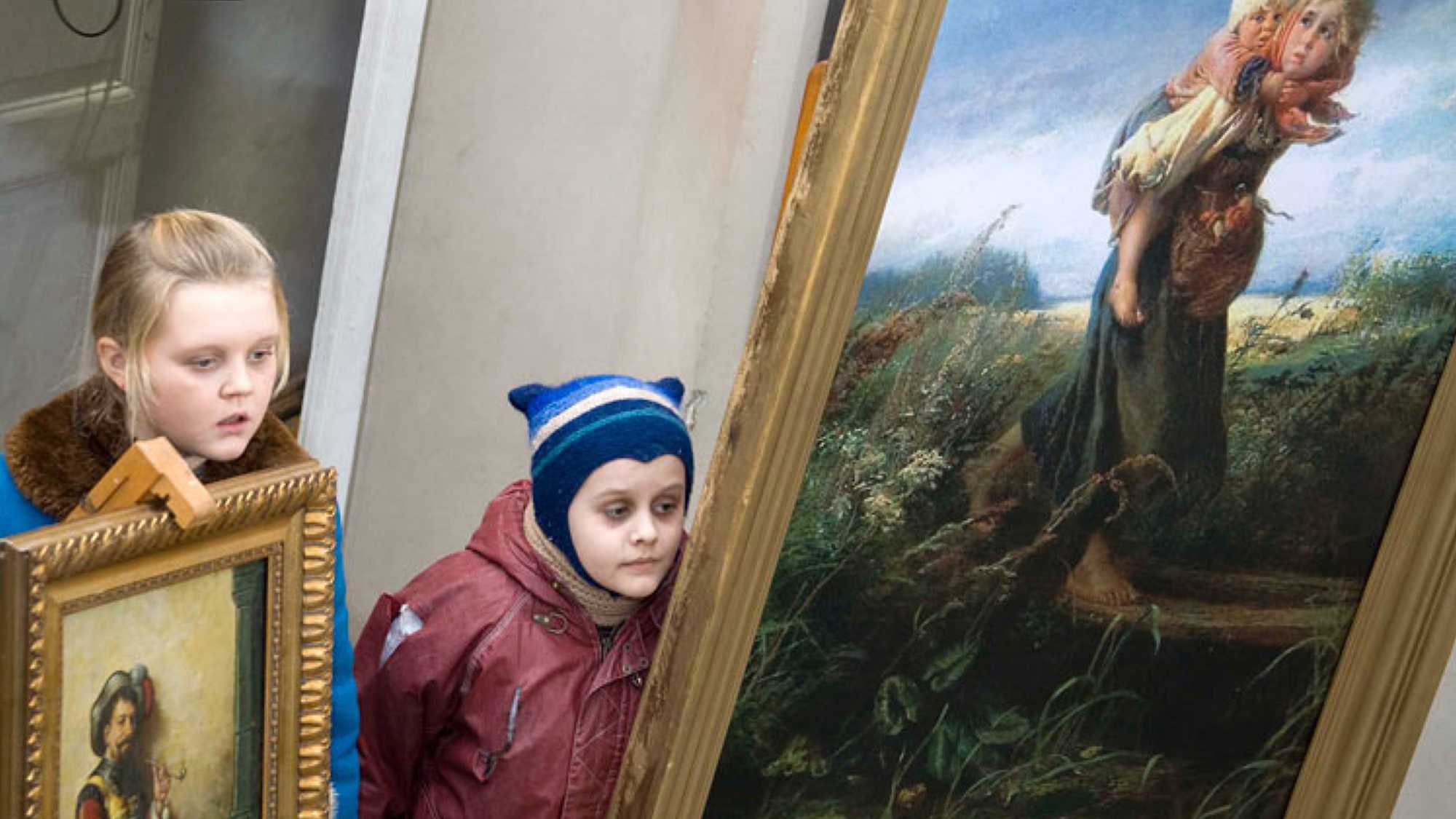This moving, extravagantly realised tale of two children lost on the streets of Kiev is a new masterpiece by the brilliant Kira Muratova (The Aesthenic Syndrome) and a damning vision of the post-Soviet era.

Outlawed as a filmmaker in the Soviet era, the brilliant Muratova has now created a magnificently cinematic, moving and damning cavalcade of the new era.
Screened as part of NZIFF 2010
Melody for a Street Organ 2009
Melodiya dlya sharmanki
Kira Muratova, the grande dame of Eastern European cinema, returns with her richest, most imposing vision of societal decay and personal efflorescence since The Aesthenic Syndrome encapsulated a very different moment in the former Soviet Union’s history in 1989. Set largely in the vast central railway station of Kiev, a casino, a shopping arcade and the snow-blanketed streets between, Melody is a majestically realised pageant of the burgeoning new economy of inequality. Like Dickensian orphans or children in a fairy tale, a motherless brother and sister arrive in the city and traipse through festive Christmas streets looking for their respective fathers. Stolid, good-hearted, mutually devoted, never cute or imploring, the two children are fiercely touching figures. It’s Muratova’s genius to leave us moved by the direct, uningratiating performances and simultaneously floored by the brilliance with which she has channelled centuries of folklore and urban mythology into her two emblems of innocence.
The world that bears down on them is more careless in its cruelty than calculating, more often braindead than downright vicious. The heedless adults who rush around them are endowed with varying blends of self-preoccupation, larceny, scepticism, boredom, gluttony and panic. But even at their most appalling these caricatures of urban insanity are disturbingly, sometimes even hilariously familiar. Muratova’s vision of 21st-century decadence is thrilling in its ripe theatricality and self-conscious dramatic heft, yet its thunderous damnation could awaken the most jaded soul. This deeply unfashionable film is some kind of masterpiece. — BG